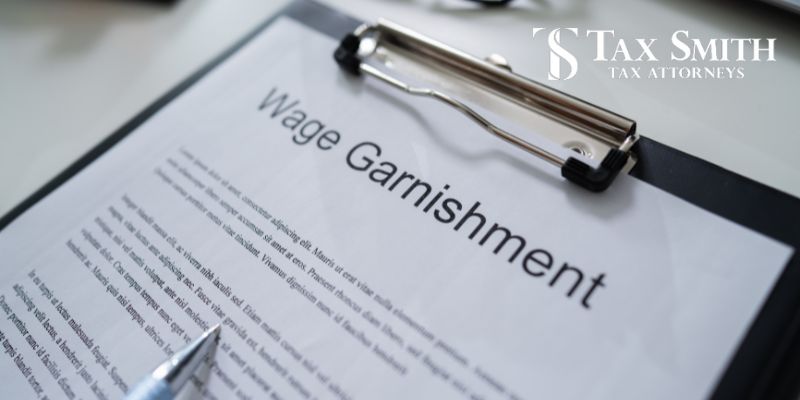
Your Ally in Financial Crisis
January 25, 2024Wage garnishment can be a daunting experience, affecting your financial stability and overall well-being. Understanding the intricacies of wage garnishment and seeking legal help is crucial in navigating through this challenging situation.
I. Introduction
A. Definition of Wage Garnishment
Wage garnishment is a legal process wherein a portion of an individual’s earnings is withheld by an employer to satisfy a debt owed to a creditor. It is a powerful tool creditors use to recover money owed to them.
B. Legal Implications
While wage garnishment is a legal process, there are specific regulations and limitations in place to protect the rights of employees. Understanding the legal implications is essential for anyone facing this situation.
C. Importance of Seeking Legal Help
Navigating through the complexities of wage garnishment requires legal expertise. Seeking the assistance of a wage garnishment lawyer can make a significant difference in resolving the issue effectively.
II. Understanding Wage Garnishment
A. How Wage Garnishment Works
Wage garnishment typically involves a court order that directs an employer to withhold a specific amount from an employee’s paycheck. This withheld amount is then sent directly to the creditor to settle the debt.
B. Common Reasons for Wage Garnishment
Various debts can lead to wage garnishment, including unpaid taxes, child support, and defaulted loans. Understanding the reasons behind wage garnishment is crucial in addressing the root cause.
C. Types of Debts That Lead to Wage Garnishment
Not all debts result in wage garnishment. Knowing which types of debts can lead to this legal action is essential for individuals to take proactive measures.
III. The Role of a Wage Garnishment Lawyer
A. Overview of Legal Expertise
Wage garnishment lawyers specialize in debt-related legal matters, bringing a wealth of knowledge and experience to the table. They understand the intricacies of the legal system and can guide individuals through the process.
B. Benefits of Hiring a Lawyer
From negotiating with creditors to challenging the legality of wage garnishment, a lawyer can provide invaluable assistance. Their expertise can lead to more favorable outcomes and protect the rights of the individual.
C. The Lawyer’s Process in Resolving Wage Garnishment
Wage garnishment lawyers follow a systematic approach, which may include reviewing the details of the case, assessing legal options, and representing their clients in court if necessary.
IV. Finding the Right Wage Garnishment Lawyer
A. Researching and Shortlisting Lawyers
Finding a qualified lawyer involves thorough research and shortlisting based on their expertise in debt-related matters.
B. Initial Consultation and Case Evaluation
During the initial consultation, the lawyer evaluates the specifics of the case, providing insights into potential strategies and outcomes.
C. Assessing Legal Fees and Payment Plans
Understanding the financial aspect of hiring a lawyer is essential. Many wage garnishment lawyers offer flexible payment plans to accommodate their clients’ needs.
V. Legal Rights and Protections
A. Employee Rights in Wage Garnishment
Employees have specific rights when facing wage garnishment. Lawyers ensure that these rights are protected throughout the legal process.
B. Exemptions and Limitations
Certain exemptions and limitations apply to wage garnishment. Lawyers can navigate these intricacies to achieve the best possible outcome for their clients.
C. How a Lawyer Can Safeguard Your Rights
Wage garnishment lawyers play a crucial role in safeguarding the rights of their clients, ensuring fair treatment throughout the legal proceedings.
VI. Steps to Challenge Wage Garnishment
A. Gathering Evidence and Documentation
Challenging wage garnishment requires thorough documentation and evidence to support the case.
B. Filing a Claim or Request for Hearing
The legal process involves filing a claim or requesting a hearing to present the case before a judge.
C. Possible Outcomes and Resolutions
Understanding the potential outcomes and resolutions is crucial for individuals seeking to challenge wage garnishment successfully.
VII. Benefits of Resolving Wage Garnishment
A. Financial Relief and Stability
Resolving wage garnishment provides immediate financial relief, allowing individuals to regain stability and control over their finances.
B. Rebuilding Credit Score
Successfully resolving wage garnishment contributes to rebuilding credit scores, opening up opportunities for financial growth.
C. Long-Term Impact on Employment
A positive resolution to wage garnishment can have a long-term impact on employment, ensuring that individuals can focus on their careers without the burden of ongoing financial challenges.


:max_bytes(150000):strip_icc()/Web_1500-bri-lab-grown-diamonds-test-helzberg-hb1-jthompson-0577-8334ebf918474b3caac7697265ba6029.jpg)








